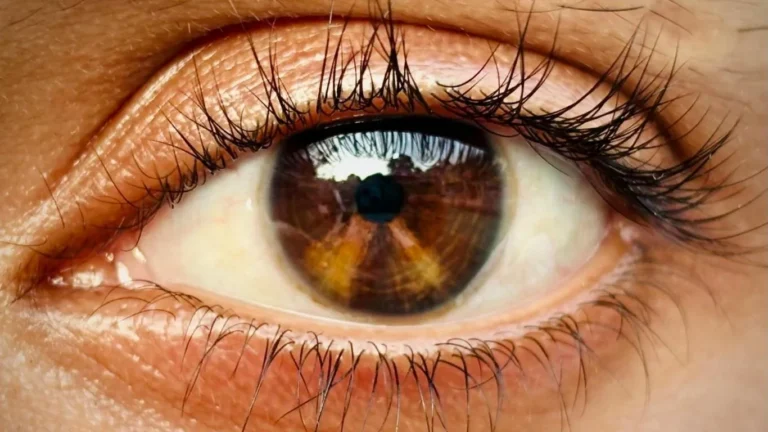Hypertension and High Cholesterol Management: A Heart-Healthy Approach to Better Living 💓
Hey there! If you’re reading this, chances are you’re either dealing with high blood pressure (hypertension), high cholesterol, or just want to know more about managing them. Believe me, you’re not alone. Both of these health conditions are more common than you might think, and managing them properly can make a world of difference in your overall health. As someone who specializes in hypertension and high cholesterol management, I can tell you that the journey to heart health doesn’t have to be complicated or scary. It’s all about making a few smart choices and sticking with them.
So let’s break it down in a way that’s easy to understand, practical, and hopefully, a little less intimidating.
What’s the Deal with Hypertension and High Cholesterol?

Before we dive into the management part, it’s important to know what these conditions actually are. So, let’s talk basics.
Hypertension: The Silent Health Risk
Hypertension is basically when your blood is pushing against the walls of your arteries too hard. Think of it like a garden hose with the water turned on full blast. Over time, that pressure can damage your arteries, increase your risk of heart disease, and even lead to strokes.
I remember one of my patients, let’s call her Jane. She was in her mid-50s and didn’t think she had anything to worry about. But when she came in for a routine check-up, we found out her blood pressure was way too high. The thing is, she had no idea she was at risk. That’s the sneaky part of hypertension—it doesn’t always show obvious signs until it’s too late.
High Cholesterol: Not Just a Fatty Issue
Cholesterol’s a bit of a tricky thing. Our bodies actually need it to function, but there’s good cholesterol (HDL) and bad cholesterol (LDL). When the bad cholesterol builds up, it starts forming plaque in your arteries, which makes your blood flow harder, much like how dirt can clog up a pipe.
One of my patients, Mike, had high cholesterol for years, and he didn’t even realize it. He was eating a lot of fried foods, not exercising, and thought he was just “fine.” After a blood test, we found his cholesterol levels were sky-high, putting him at risk for heart disease.
Hypertension and High Cholesterol Management: Let’s Make It Happen!

Now, let’s talk about hypertension and high cholesterol management. The good news is, there’s plenty you can do to manage both of these conditions and reduce your risk of heart problems. It might take some time, but small changes can have a huge impact.
Prevention: Starting With Small, Simple Steps
It’s never too late to start! Here’s what I recommend to anyone looking to manage or even prevent hypertension and high cholesterol:
- Get Moving: I can’t stress this enough—exercise is your best friend. It doesn’t have to be intense. I tell people to aim for 30 minutes of moderate activity every day. That could be walking, biking, dancing—anything that gets your heart pumping! It really helps lower blood pressure and can improve cholesterol levels.
- Eat a Balanced Diet: Food is medicine, folks. If you’re dealing with high cholesterol and hypertension, it’s time to swap out some of those greasy burgers for fruits, veggies, whole grains, and lean proteins. Trust me, your heart will thank you. One easy swap is replacing butter with olive oil. It’s a small change, but it can make a big difference!
- Control Your Weight: Losing even a small amount of weight can help lower both blood pressure and cholesterol. I’ve had patients drop just 10-15 pounds and see huge improvements. It’s all about consistency.
Diagnosis: Getting Checked Regularly
You won’t know if you have hypertension or high cholesterol unless you get tested. Period. That’s why I always recommend regular check-ups. Here’s what to expect:
- Blood Pressure: I always say, “Know your numbers.” You should get your blood pressure checked every year (or more often if you’re at higher risk). If it’s consistently 130/80 or higher, you might have hypertension.
- Cholesterol: A simple blood test is all it takes to know your cholesterol levels. Adults should check theirs at least every 4-6 years if they’re over 20 years old. If you have risk factors like family history, high blood pressure, or smoking, get checked more frequently.
Treatment: Medications, Lifestyle, and Everything In Between
If you’re diagnosed with hypertension or high cholesterol, your doctor might prescribe medication to help. But don’t forget—medications are often more effective when combined with lifestyle changes. Here’s a rundown of both:
- For Hypertension: Medications like ACE inhibitors, diuretics, and beta-blockers can help bring your blood pressure down. But remember, they work best when paired with regular exercise and a low-sodium diet.
- For High Cholesterol: Statins are the most common medication for lowering cholesterol, but diet changes and exercise can often make a huge impact before medication even comes into play.
Troubleshooting Common Issues in Hypertension and High Cholesterol Management

Managing hypertension and high cholesterol isn’t always smooth sailing, and I totally get it. Here are a few issues that come up often, and how you can deal with them:
1. Sticking to Your Medication Routine
I know, remembering to take your meds every day can be a hassle. Try setting a daily reminder on your phone or using a pill organizer. It sounds simple, but it works!
2. Finding Time to Exercise
Trust me, I get it. Life gets busy. But even a 10-minute walk after dinner can make a difference. Find a time that works for you and stick to it. I’ve had patients who started walking during their lunch breaks and ended up feeling so much better.
3. Eating Better When You’re Craving Junk
We all have those days when we just want a big plate of fries, right? The trick is to find healthier alternatives that still satisfy your cravings. For example, baked sweet potato fries are a great alternative!
4. Side Effects from Medications
Some people feel tired or dizzy when they first start medication. If that’s you, don’t panic. Talk to your doctor about adjusting your dosage or trying a different medication.
Real-Life Success Stories: You Can Do This! 🌟

I’ve seen so many people take control of their health and turn things around. Here are a couple of success stories:
Sarah’s Story: A New Lease on Life
Sarah, a 47-year-old teacher, had high blood pressure and high cholesterol for years. She didn’t want to rely on medications forever, so she started walking every day and swapped out her processed snacks for whole foods. Within six months, her cholesterol dropped, and her blood pressure was back to normal! She’s now in her 50s and still going strong.
Mark’s Story: Tackling Hypertension Head-On
Mark came to me in his late 40s, frustrated with his hypertension and family history of heart disease. He started taking his medication regularly, cut down on salt, and started cooking more at home. Fast forward a year, and his blood pressure has dropped significantly. He’s off the meds and living a healthier life.
Key Takeaways: It’s All About Consistency
Hypertension and high cholesterol management comes down to consistency. Small changes, over time, can lead to big results. Keep up with your check-ups, stick to a heart-healthy lifestyle, and don’t be afraid to ask for help when you need it. You’ve got this!
5 FAQs About Hypertension and High Cholesterol
- Q1: Can high cholesterol be reversed?
A1: Yes, through diet, exercise, and sometimes medication, cholesterol levels can improve or even return to a healthy range. - Q2: Is hypertension always a lifelong condition?
A2: Not necessarily. With lifestyle changes, many people can manage or even eliminate hypertension. - Q3: How can I naturally lower my cholesterol?
A3: Eating more fiber, healthy fats, and reducing processed foods can help lower cholesterol levels naturally. - Q4: What foods should I avoid with hypertension?
A4: Try to limit foods high in sodium, processed foods, and saturated fats. - Q5: How quickly can medications lower blood pressure?
A5: It depends on the medication and the person, but blood pressure can often lower within a few days to weeks of starting treatment.
Appendix
References:
- American Heart Association – www.heart.org
- Cleveland Clinic – www.clevelandclinic.org
- Mayo Clinic – www.mayoclinic.org
Disclaimer: This article is for informational purposes only. Please consult your healthcare provider for personalized medical advice.
Call to Action: Ready to take charge of your heart health? Start today by scheduling a check-up, or make a few small changes in your diet and exercise routine. You’ve got this!

Dr. Gwenna Aazee is a board-certified Internal Medicine Physician with a special focus on hypertension management, chronic disease prevention, and patient education. With years of experience in both clinical practice and medical writing, she’s passionate about turning evidence-based medicine into accessible, actionable advice. Through her work at Healthusias.com, Dr. Aazee empowers readers to take charge of their health with confidence and clarity. Off the clock, she enjoys deep dives into nutrition research, long walks with her rescue pup, and simplifying medical jargon one article at a time.







